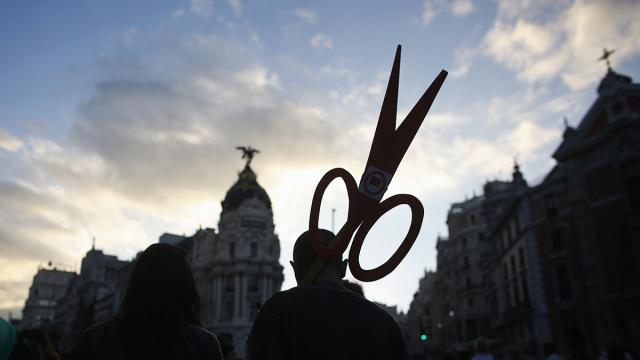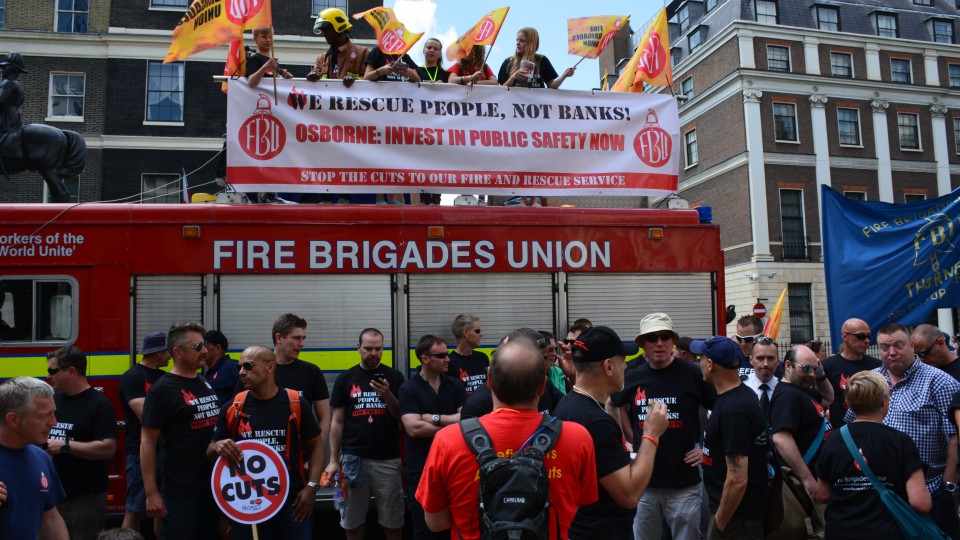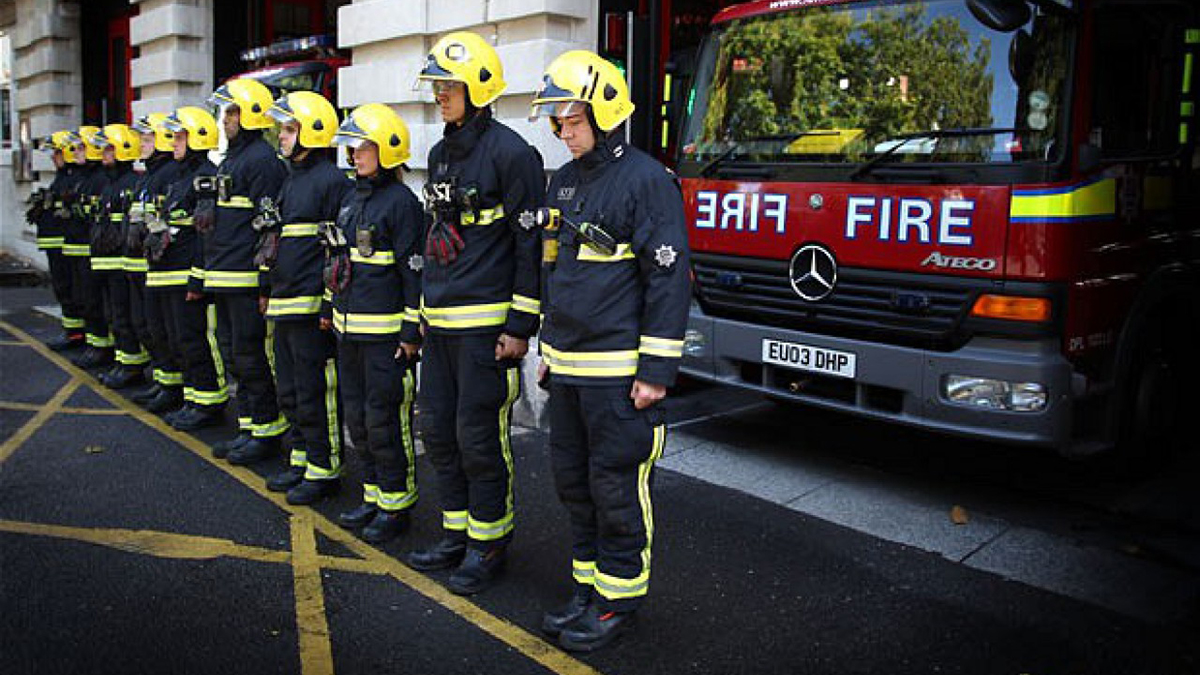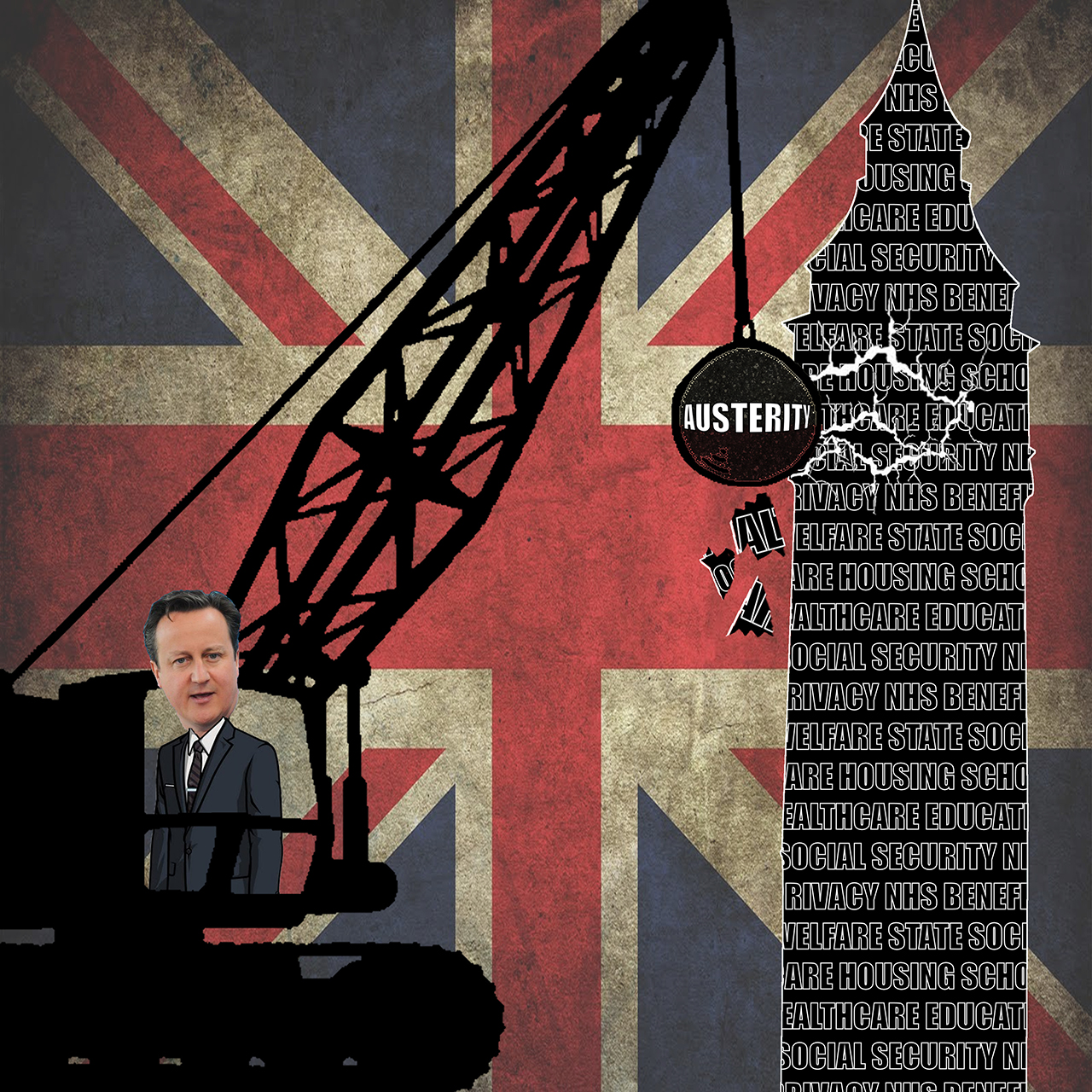
Weary of austerity and inequality, widespread dissent could be in the cards across the U.K. Britain’s "austerity fatigue" has surfaced following a poll by the Financial Times which shows Britain’s acceptance of cuts is swiftly deteriorating.
The FT’s recent Populus poll revealed that only two in five of voters in the U.K. are of the opinion that further cuts will be required following the 2015 general election. The anti-austerity sentiment was widely expressed despite Britain’s lingering budget deficit currently set at £75.2 billion ($118.9 billion) in 2015-16.
At the beginning of the year, Britain’s Chancellor George Osborne warned Britain was going to face a "year of hard truths." True to his word, 2014 has been awash with harsh welfare cuts and jobs being axed.
But the FT’s survey showed that the majority of U.K. voters believe that instead of using austerity as a means of peeling back the deficit, it should be reduced by abolishing the government’s extravagant government spending.
Just 41 percent of the poll’s participants agreed that Britain “will need to continue with austerity and in government spending in the next five years.” Only 33 percent of those surveyed accepted the government would have to establish further measures and savings that had a direct impact on people’s lives.
48 percent believe that an “efficient government” would be able to achieve the required savings by cutting frivolous waste, stating “there should be no need for cuts in the areas that really affect people.”
Rewarding the Rich and Punishing the Poor
The poll revealed that the British people are likely to be in support of cuts that are "less painful" to everyday people, suggesting that bankers and owners of mansions should be asked to pay more.
Anger towards the Coalition Government’s tendency to "reward the rich and punish the poor" was heightened recently when news emerged that George Osborne spent almost £200,000 of British taxpayers’ money protecting bankers from Brussels.
The chancellor came under fire for the “outrageous misuse” of public money when a Freedom of Information Request by the Huffington Post UK revealed that the British Treasury spent £67,808 on legal fees in an unsuccessful bid to fight against the inauguration of the Financial Transaction Tax (FTT), also known as the “Robin Hood Tax.”
Officials in Britain argued that the Robin Hood Tax would hamper the competitiveness of the City of London. Their bid, however, was thrown out by the European Court of Justice in April. The £67,808 wasted on legal fees for the failed bid was not the only excessive money the U.K. government has clumsily thrown away in recent months; an additional £20,289.60 figure was also disclosed as having been spent on the fight against an E.U. cap on bankers’ bonuses.
Public Dissent Brewing in Britain
According to the FT poll, the snowballing weariness of austerity and wasteful government spending in Britain indicates the U.K. is on the brink of widespread dissent. A series of notable protests and petitions resisting the burgeoning public spending cuts, and inequality in general, have been brewing for some time.
For example, in the wake of the startling decline of the British healthcare system as a result of severe cuts and privatization, a storm of opposition surfaced that is gathering momentum. With more than 3,500 nursing jobs lost in 2012, and hospitals closing in what has been described as an “unprecedented NHS-wide cash squeeze,” tens of thousands of people signed an online petition urging the government to end its damaging NHS reforms.
But the NHS is far from the only public sector service targeted in the U.K., where cuts are fueling dissent.
"Blood on Boris’s hands"
In August, firefighters across England and Wales walked out and headed to the picket line to protest an ongoing dispute over pensions that firefighters argue will result in their having to pay more into their pensions and receive less money in return.
With fire stations being closed across the county, including one in London that is being converted into luxury flats, activists have warned that closures are “compromising public safety" – and that the mayor of London, Boris Johnson, is responsible.
“Boris Johnson will have blood on his hands. It will be only a matter of time of time before someone dies because a fire engine did not get to them in time,” warned Paul Embrey, London regional secretary of the Fire Brigades Union, following the closure of a fire station in the capital.
Among the biggest anti-austerity protests in recent years took place in London in 2011. Called the March for the Alternative, and organized by the Trades Union Congress, the protest attracted more than a quarter of a million people who demonstrated against the Coalition Government's planned public spending cuts. It was described as the largest protest in the U.K. since of anti-Iraq War demonstrations of 2003. It was also the largest demonstration organized by a union since the Second World War.
Since the Coalition came into power in 2010, one in six council workers have been sacked in an attempt to claw back deficits. When informed of this statistic, Steve, a 59-year-old council worker, said: “We might all be in this together, but why target the professions which are the backbone of the country’s survival?”
“Target the rich instead. They must pay without any loopholes that enable them to maintain glamorous ‘Monaco lifestyles,'” he added.
3 WAYS TO SHOW YOUR SUPPORT
- Log in to post comments

















